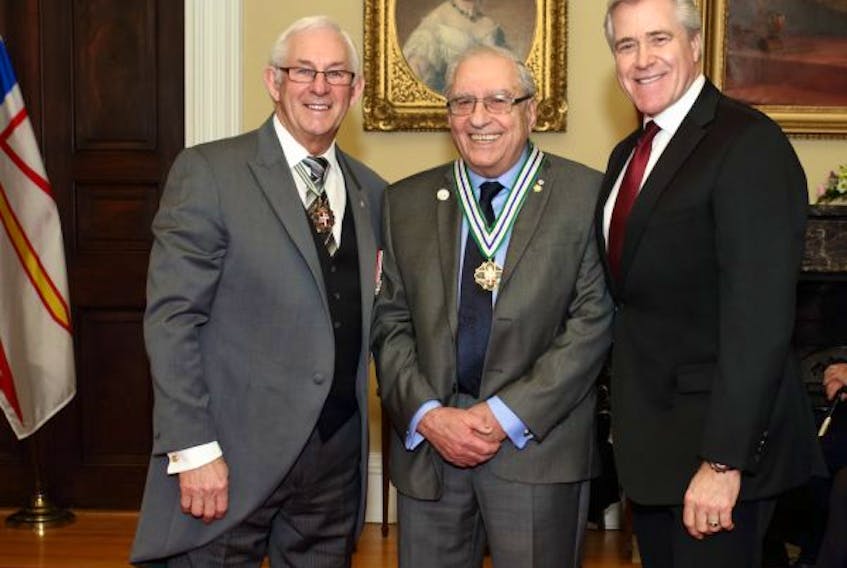ST. JOHN'S, N.L. — A tremendous explosion Tuesday in the heart of Beirut, the capital of Lebanon, is being felt in Newfoundland and Labrador.
Early reports suggest the explosion was the result of a storehouse filled with ammonium nitrate — though investigations are still ongoing about the cause.
As of Thursday afternoon, 145 people were reported dead, 5,000 wer injured, and 300,000 were displaced as a result of the blast.
“It was devastation. Just looking at the horror as it was unfolding, people running everywhere in the streets, they were bloodied, there were cars overturned, buildings destroyed, and mayhem. It was horrible,” said Sharon Dominic, president of the Lebanese Association of Newfoundland and Labrador.

“My heart just sank thinking about the Lebanese people.”
The Lebanese Association represents 200 people of Lebanese descent in Newfoundland and Labrador.
Dominic says the community is tight-knit, something characteristic of the people of Lebanon wherever they are in the world.
“Lebanon is a small country and people are so closely knit that even though they might not live in Beirut, it’s very, very close. It’s culturally a close-knit group,” she said.
“There’s a lot of families affected. Everybody feels it. Even though you’re not there and a lot of people have never been there, you feel it because you know this is your family. You have relatives back there. Some are closer than others, but it’s a tragedy.”
Dr. Falah Maroun, a pioneering surgeon who performed the first epilepsy surgery in Newfoundland and Labrador, still has family in Lebanon, with one family member struck by shards of glass scattered by the blast.
Maroun says the tragedy comes at an already difficult time in Lebanese history. With the war in Syria continuing to rage, Lebanon has been caught in the middle of the geopolitics of the area, with Iranian-backed Hezbollah gaining influence in the country.
On Friday, the verdict in a trial investigating the death of former prime minister Rafic Hariri was expected, but has been postponed due to the emergency declared after Tuesday’s explosion.
Lebanon has also been hit by the COVID-19 pandemic, with just over 5,000 confirmed cases in the country of 6.8 million people.
Maroun says he is concerned for his home country.
“I have brothers and family, I’ve been in touch with them the entire time, not (just) through this crisis. I usually phone on Saturday. One of my nieces had a superficial injury from flying glass. All the buildings have been, as you’ve seen, shook up. She’s alright and friends that I know are safe,” he said.
“But the problems go quite deep. I think we need help, but we need to help ourselves first and get together as a nation, really.”
Maroun said he hopes the tragedy can be what brings the country together.
“I hope so. That’s what we’re hoping, but it seems they’ve become too much divided along sectarian lines and religious lines, political lines,” he said.
The Lebanese community in the province has a long history, with the first record of Lebanese merchants coming to the province in the 1860s.
Former New Democratic Party leader Lorraine Michael’s grandparents came to Newfoundland and Labrador in 1910 and set up Michael’s Grocery and Confectionary on New Gower Street, before the road became the modern four-lane parkway it is today. Michael says Lebanese people came to the province as merchants and established themselves in every corner of the province.
“Lebanese are merchants and they’re travellers, going right back to the Phoenicians. Newfoundland was a very important part of the whole trade route that went from Europe all the way down to the Caribbean. We were a lynchpin in that trade route. It would make all the sense in the world that people with the history that the Lebanese had for searching out, for travelling, for being the people who explored and moved around the world, it was just logical,” said Michael.
Lebanese grocery stores appeared in St. John’s, Corner Brook, Botwood, Carbonear and even Fleur De Lys, on the tip of the Baie Verte Peninsula.
“The Lebanese have had an influence all over the province, all over the island, even in Labrador,” she said.
Dominic says the local Lebanese community is still reeling from the tragedy, but a memorial service for the lives lost is expected to be held in the coming weeks.









